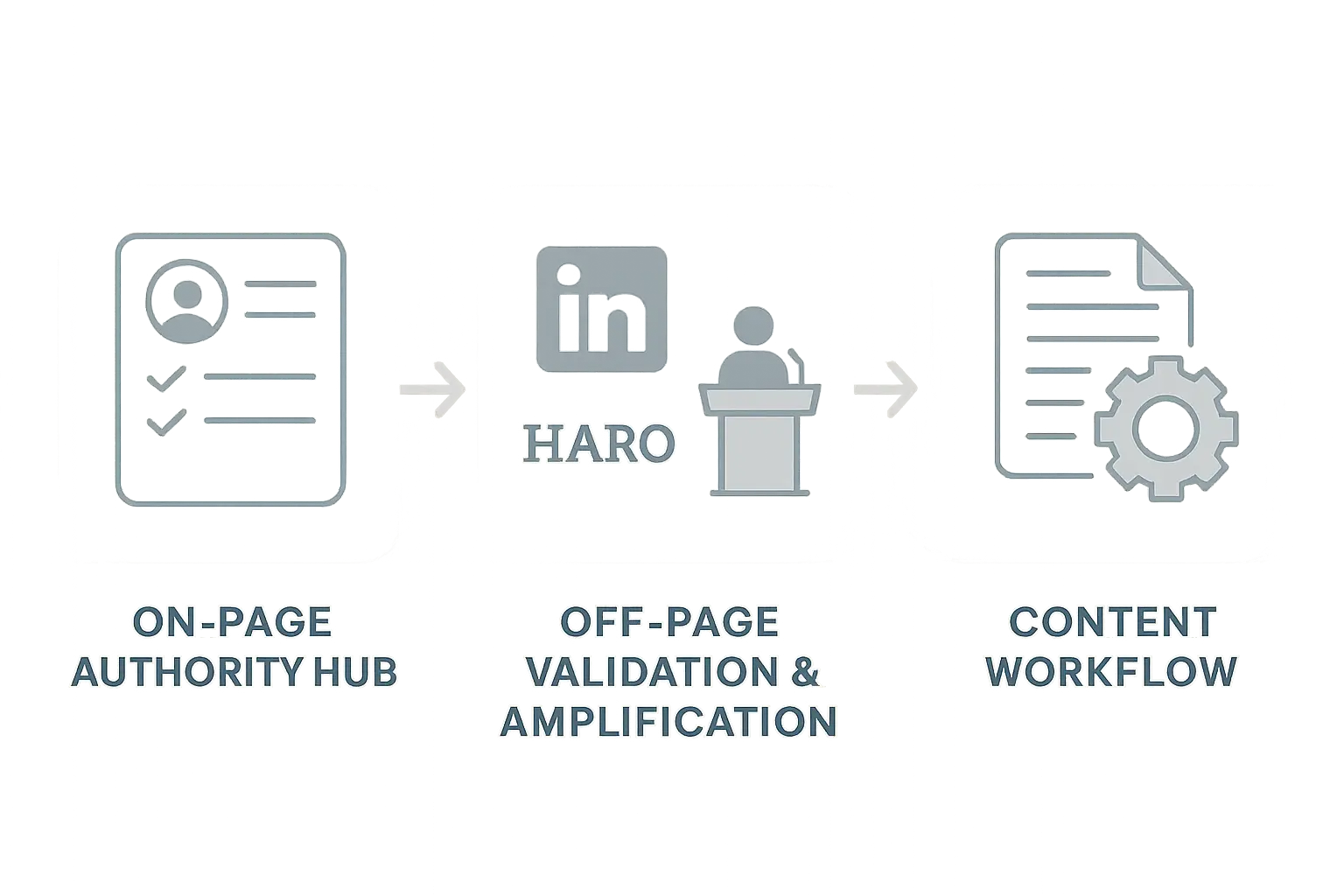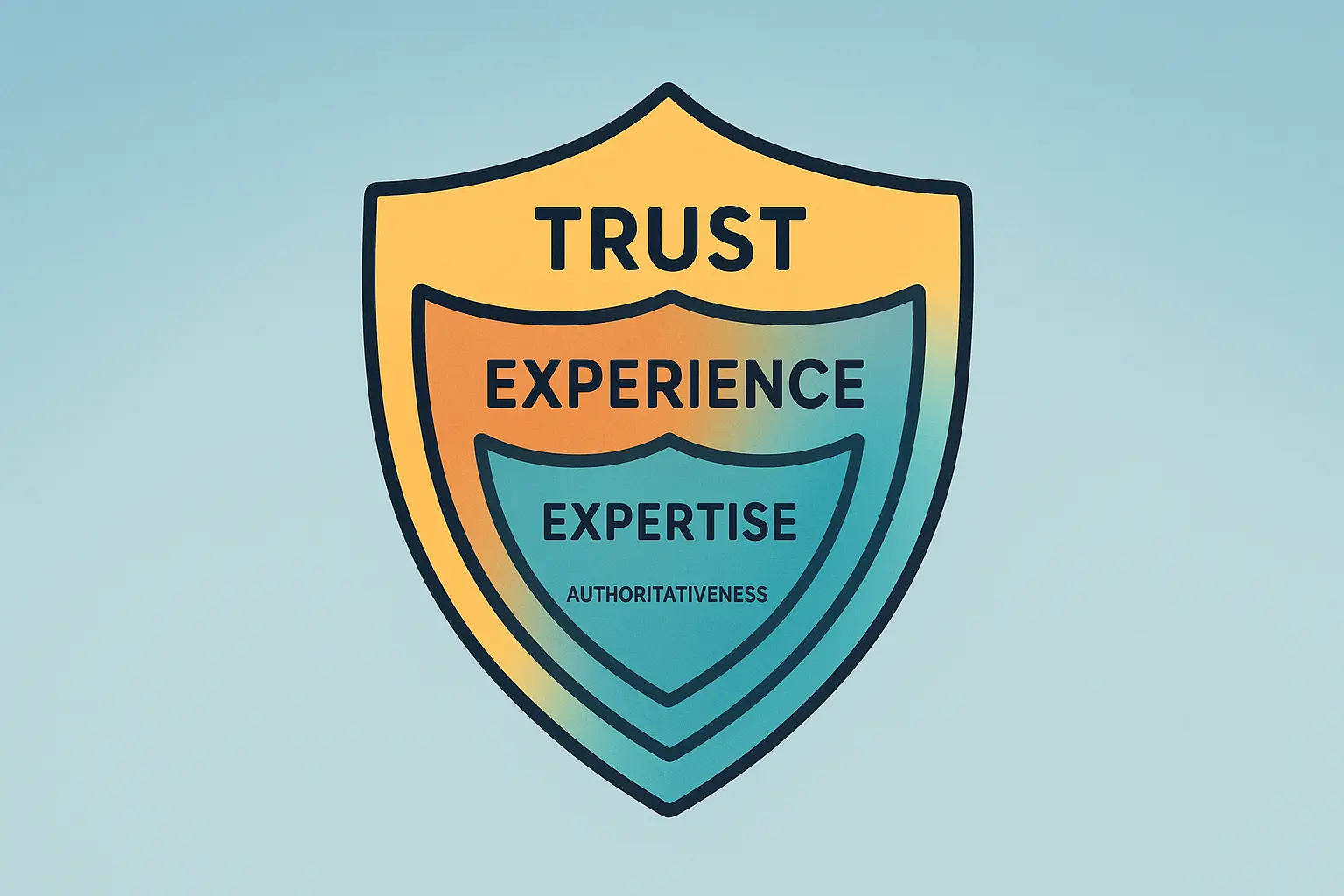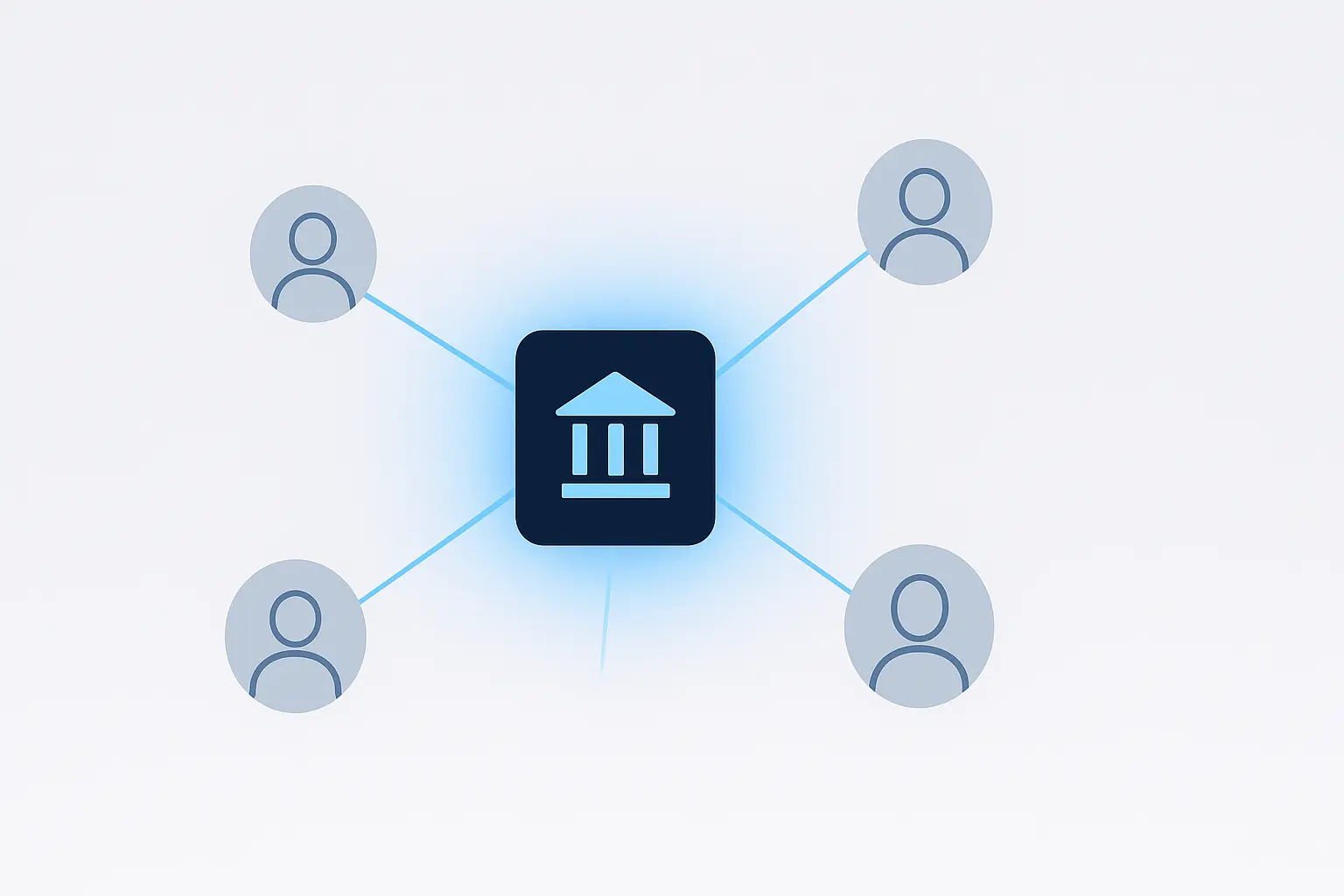Have you ever noticed that when you search for a complex business topic, the top results often feature content written by a specific, named individual? Not just a faceless brand, but a person with a headshot, a bio, and a long history of writing on the subject.
This is no accident.
Google’s algorithm has evolved. It’s no longer a machine that just reads text on a page; it’s now trying to understand real-world reputation. It’s not enough for your client’s website to claim it’s an authority—Google wants proof. And that proof often comes from the recognized expertise of the people behind the brand.
This is the power of the Author Signal Framework: a strategic approach that turns your client’s in-house subject matter experts into powerful SEO assets, building trust, authority, and, ultimately, rankings for the corporate brand.
First, What Exactly is E-E-A-T?
You’ve likely heard of E-A-T, but Google recently added a crucial new letter to the acronym, making it E-E-A-T:
- Experience: Do you have firsthand, real-world experience in this topic? Have you actually used the product, solved the problem, or visited the place you’re writing about?
- Expertise: Do you have the necessary knowledge or skill in the field? This can be formal (like a degree) or informal (years of hands-on work).
- Authoritativeness: Are you or your website recognized as a go-to source by others in your industry? This is often demonstrated by links, mentions, and shares from other reputable sites.
- Trustworthiness: Is your site secure (HTTPS)? Are your reviews positive? Is it clear who is behind the content and can they be trusted?
The addition of “Experience” was a game-changer, signaling a clear shift toward prioritizing content from people who have actually done the thing. A theoretical article about fixing a leaky pipe is far less valuable than one written by a plumber with 20 years of experience.
This isn’t just a Google-ism; it mirrors human psychology. The Edelman Trust Barometer found that 80% of people are more likely to trust a company if they can see and hear from its experts. People trust people—and E-E-A-T is Google’s way of algorithmically rewarding that fundamental truth.
The Author Signal Framework: Turning Experts into SEO Assets
The Author Signal Framework is a system for connecting the real-world E-E-A-T of your client’s key people to their corporate website. Instead of hoping Google figures it out, you’re creating a clear, interconnected web of signals that proves your client’s authority.
It’s about making sure that when Google looks at an article by “Jane Doe, Head of Cybersecurity,” it doesn’t just see a name—it sees a recognized expert with a history of credible work across the web.
Pillar 1: The Home Base — The Author Page
The single biggest mistake companies make is publishing high-quality content under a generic “Admin” or “Company Staff” byline. Every article is an opportunity to build an individual’s authority, which in turn boosts the site.
A well-optimized author page is the central hub for each expert. It’s not just a bio; it’s a portfolio of their expertise.
A perfect author page includes:
- A Professional Headshot: Puts a face to the name, building immediate trust.

- A Detailed Bio: Go beyond the job title. Mention years of experience, key accomplishments, certifications, and any notable publications or speaking engagements. This directly addresses “Experience” and “Expertise” in E-E-A-T.
- Social & Professional Links: A link to their LinkedIn profile is non-negotiable. Other relevant platforms like Twitter or industry-specific forums are also valuable.
- A Feed of Their Content: Automatically display every article they have written for the site, creating a one-stop shop to see their body of work.
Optimizing these pages is a foundational step, which is why it’s a core component of modern white-label SEO services—it directly addresses Google’s quality guidelines and builds a defensible moat of authority.
Pillar 2: Amplify Expertise Beyond the Blog
An expert who only exists on the company blog feels one-dimensional. True authority is demonstrated across the web.
- LinkedIn is Your Expert’s Second Homepage: It’s no longer just a digital resume. It’s a powerful publishing and networking platform—after all, 94% of B2B marketers use it for content distribution. Encourage your client’s experts to share their articles, post original thoughts, and engage in industry discussions. All this activity sends strong, relevant signals that Google can see.

- Get Quoted (HARO, Qwoted, etc.): Services like Help a Reporter Out (HARO) connect journalists with subject matter experts. Getting your client’s expert quoted in a reputable publication (even without a backlink) builds their digital footprint and reinforces their authority on a topic.
- Strategic Guest Appearances: Contributing guest posts to respected industry blogs or appearing on podcasts creates high-quality backlinks and brand mentions that are tied directly to the author, not just the company.
Pillar 3: Connect the Dots with Structured Data
This is the technical magic that ties everything together. Schema markup is code you add to your website to give search engines more context about your content. For author signals, two types are critical:
- Author Schema: On every article page, you use this to tell Google explicitly who wrote the content, linking to their author page on your site.
- Person Schema: On the author page itself, you use this to define the expert. Most importantly, you use the “sameAs” property to link to their other online profiles—LinkedIn, Twitter, personal website, etc.
Think of this as giving Google your expert’s digital passport. It proves the “Jane Doe” on your website is the same “Jane Doe” who is a recognized cybersecurity voice on LinkedIn and was quoted in Forbes. It creates an undeniable, machine-readable identity.

The Ripple Effect: How Author Signals Drive Business Growth
The benefits of this framework extend far beyond keyword rankings. Building the profiles of key people creates a powerful flywheel effect for the entire business.
According to Semrush, 47% of consumers view 3-5 pieces of a company’s content before engaging with a sales rep. When that content is authored by a credible, visible expert, the sales cycle shortens because trust is already established.
For agencies juggling multiple clients, managing this level of personal brand development can be complex. It requires a coordinated effort across content, PR, and technical SEO. This complexity is why many turn to SEO outsourcing for agencies to execute these detailed strategies at scale without overloading their in-house teams.
Frequently Asked Questions (FAQ)
How do we choose which people to feature as authors?
Start with the people who have the most demonstrable E-E-A-T. This often includes:
- C-suite executives (CEO, CTO, CMO)
- Heads of departments or lead engineers
- Subject matter experts who are already client-facing (e.g., solution architects, senior consultants)
- Anyone who is already passionate and active on platforms like LinkedIn.
Will this work for a “boring” B2B industry?
Absolutely. In fact, it often works better. In highly technical or niche B2B industries, expertise is the primary currency. Your client isn’t selling a trendy consumer product; they’re selling competence and reliability. Demonstrating the deep expertise of their people is the most effective way to build trust with sophisticated buyers.
How long does it take to see results?
Building true authority is a marathon, not a sprint. While you can see initial benefits quickly from on-page optimizations like creating robust author pages, the full effect of off-site signals like guest posts and media mentions takes time to build. Expect the authority to truly compound over 6 to 12 months. Patience is key, and working with an experienced agency SEO partner can help set realistic timelines and track the right leading indicators of success.
What’s the difference between an author brand and the company brand?
They are symbiotic. The author brand supports the company brand. The person provides the human “Experience” and “Expertise,” which in turn reinforces the company’s overall “Authoritativeness” and “Trustworthiness.” It’s a powerful combination: the reliability of a brand powered by the credibility of its people.
From Individual Signals to a Unified Strategy
In today’s competitive digital landscape, hiding your experts is a liability. Your client’s most valuable asset isn’t just their product or service; it’s the collective knowledge and experience of their team.
The Author Signal Framework provides a repeatable process for harnessing that value, turning individual expertise into a powerful, defensible SEO advantage for the entire organization. Start by looking at your client’s team. Who are their untapped experts? By bringing them into the spotlight, you’re not just optimizing for Google—you’re building a brand that people know, recognize, and trust.

